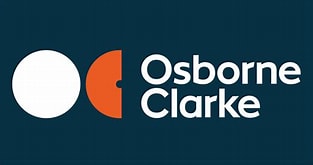Calling someone bald is unlawful harassment, reports Osborne Clarke
Courtesy of Osborne Clarke’s Employment Law Coffee Break
An employment tribunal has ruled that an electrician called a “bald ***t” during heated arguments was harassed on the grounds of his sex.
The claimant was employed as an electrician and was dismissed from his employment without notice by the respondent, a small family business employing around 30 employees who are predominantly, if not exclusively male.
It was recognised that industrial language is commonplace upon the shop floor, but the three-person tribunal found that there is a connection between the word “bald” on the one hand and the protected characteristic of sex on the other.
As there is no standalone claim for bullying, employees subjected to insults must bring their complaints on the grounds of harassment on the basis of a protected characteristic (the characteristic in this case being sex) or as a constructive unfair dismissal complaint.
What is construed as harassment and not just banter?
The tribunal was satisfied that the conduct towards the claimant was unwelcome and uninvited and therefore was unwanted and that the words were uttered with the purpose of violating the claimant’s dignity and creating an intimidating, hostile, degrading, humiliating or offensive environment for him; the conduct could therefore be considered as harassment.
The issue was whether there was a link between the unwanted harassing words on the one hand and the protected characteristic of sex on the other. The tribunal found that there was a connection between the word “bald” on the one hand and the protected characteristic of sex on the other.
The respondent argued that women, as well as men, may be bald, but the employment tribunal found that baldness is much more prevalent in men than women; as such, it is inherently related to sex. Notably, the employment tribunal found that baldness can affect adult males of all ages, so is not inherently a characteristic of age.
Next steps
Employers must ensure they have clear policies setting out what is acceptable conduct in the workplace and support this with training emphasising how discrimination and harassment risks can arise as a result of workplace banter and name-calling.
Calling someone bald is perhaps not obviously harassment related to sex in many employees’ minds, so it will be important to give clear examples to ensure employees understand the different ways in which discrimination and harassment can arise.
Offensive jokes and language are best avoided in all workplaces, but in settings where it is more commonplace, it is perhaps particularly important to educate employees on the parameters of what is acceptable and what is not.



